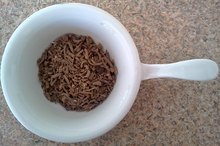Ashwagandha Liver Side Effects Contraindications
Ashwagandha has been used for more than 4,000 years in Indian medicine to treat inflammatory disease and tumors and as a general health tonic, or adaptogen, that helps your body resist stress 3. It’s also traditionally used to treat chronic liver disease. Though you are likely to hear it is a safe herb that has little or no side effects, consult a doctor before trying it for any purpose, especially if you have a health condition or you take medication. Ashwagandha can, in fact, have side effects and interact with medication.
If you are experiencing serious medical symptoms, seek emergency treatment immediately.
Side Effects
Ashwagandha’s side effects are rare, according to “Natural Physician’s Healing Therapies,” by Mark Stengler 1. They include diarrhea, gastrointestinal upset and vomiting. Digestive upset is more likely at higher doses.
Contraindications
Side Effects of Taking Too Many Dietary Supplements
Learn More
If you have peptic ulcer disease discuss ashwagandha with your doctor before trying it. This herb may worsen your condition by irritating your gastrointestinal tract. Also consult a doctor if you have a thyroid condition because ashwagandha may stimulate secretion or synthesis of thyroid hormone. Avoid ashwagandha when you are pregnant.
- If you have peptic ulcer disease discuss ashwagandha with your doctor before trying it.
- Also consult a doctor if you have a thyroid condition because ashwagandha may stimulate secretion or synthesis of thyroid hormone.
Immunosuppressive Drug Interactions
Ashwagandha may reduce the immunosuppressive effects of certain drugs, according to “The Essential Herb-Drug-Vitamin Interaction Guide,” by George T. Grossberg and Barry Fox 2. These include:
- azathioprine
- cortisone
- flunisolide
- hydrocortisone
- loteprednol
- prednisone
- tacrolimus
- thalidomide
- trimacinolone
Sedative Drug Interactions
Dandelion vs. Milk Thistle
Learn More
Ashwagandha acts as a monoamine oxidase inhibitor, defined as a drug that increases availability of the neurotransmitter dopamine in your body. Taking ashwagandha with herbs or supplements that have sedative properties can enhance both adverse and therapeutic effects. These include valerian, kava, 5-HTP and Saint-John’s-wort. Taking it with certain drugs also can magnify both positive and negative effects of the drugs. These include:
- alfentanil
- alprazolam
- butalibital
- chloral hydrate
- codeine
- diazepam
- fentanyl
- glutethimide
- hydrocodone
- meperidine
- morphine sulfate
- oxycodone
- pentobarbital
- propofol
- quazepam
- sufentanil
- zaleplon
- zopiclone
Talk to a health care provider before combining this herb with any medication or other supplement.
- Ashwagandha acts as a monoamine oxidase inhibitor, defined as a drug that increases availability of the neurotransmitter dopamine in your body.
- Taking ashwagandha with herbs or supplements that have sedative properties can enhance both adverse and therapeutic effects.
Liver Effects
Ashwagandha appears to have liver-protective effects, according to a 2010 “Journal of Basic Clinical Physiology and Pharmacology” study 56. The herb’s antioxidants, bioflavanoids and other bioactive compounds offer protection by scavenging the free radicals, notes lead study author T. Jeyanthi. This study was done on rats, however, so more research is needed to determine whether the herb offers the same benefit to humans. Seek medical advice if you have a liver ailment, and develop a treatment plan in conjunction with your health care provider.
- Ashwagandha appears to have liver-protective effects, according to a 2010 “Journal of Basic Clinical Physiology and Pharmacology” study 5.
Related Articles
References
- “Natural Physician’s Healing Therapies”; Mark Stengler; 2010
- “The Essential Herb-Drug-Vitamin Interaction Guide”; George T. Grossberg and Barry Fox; 2007
- “ Ashwagandha – The Stress Buster”; M. Ali; 2002
- “Public Library of Science One”; Ashwagandha Leaf Derived Withanone Protects Normal Human Cells Against the Toxicity of Methoxyacetic Acid; D. Priyandoko, et al.; May 2011
- “Indian Journal of Physiology and Pharmacology”; Subacute Toxicity Study of the Combination of Ginseng (Panax ginseng) and Ashwagandha (Withania somnifera) in Rats; A.A. Aphale, et al.; April 1998
- “Journal of Ethnopharmacology”; Adaptogenic and Cardioprotective Action of Ashwagandha in Rats and Frogs; J.N. Dhuley; 2000
- Kaul SC, Wadhwa R. Science of Ashwagandha: Preventive and Therapeutic Potentials. Cham, Switzerland: Springer International Publishing; 2017.
- Pratte MA, Nanavati KB, Young V, Morley CP. An Alternative Treatment for Anxiety: A Systematic Review of Human Trial Results Reported for the Ayurvedic Herb Ashwagandha (Withania somnifera). J Altern Complement Med. 2014;20(12):901-908. doi:10.1089/acm.2014.0177
- Sharma AK, Basu I, Singh S. Efficacy and Safety of Ashwagandha Root Extract in Subclinical Hypothyroid Patients: A Double-Blind, Randomized Placebo-Controlled Trial. J Altern Complement Med. 2018;24(3):243-248. doi: 10.1089/acm.2017.0183.
- Choudhary D, Bhattacharyya S, Joshi K. Body Weight Management in Adults Under Chronic Stress Through Treatment With Ashwagandha Root Extract: A Double-Blind, Randomized, Placebo-Controlled Trial. J Evid Based Complementary Altern Med. 2017;22(1):96-106. doi:10.1177/2156587216641830
- Wankhede S, Langade D, Joshi K, Sinha SR, Bhattacharyya S. Examining the effect of Withania somnifera supplementation on muscle strength and recovery: a randomized controlled trial. J Int Soc Sports Nutr. 2015;12:43. doi:10.1186/s12970-015-0104-9
- Choudhary D, Bhattacharyya S, Bose S. Efficacy and Safety of Ashwagandha (Withania somnifera (L.) Dunal) Root Extract in Improving Memory and Cognitive Functions. J Diet Suppl. 2017;14(6):599-612. doi:10.1080/19390211.2017.1284970
- Ulbricht CE. Natural Standard Herb & Supplement Guide: an Evidence-Based Reference. Maryland Heights, MO: Elsevier/Mosby; 2016.
- Pradhan SL, Pradhan PS. Ayurvedic medicine and anaesthesia. Indian J Anaesth. 2011;55(4):334-339. doi:10.4103/0019-5049.84832
- Azgomi R, Zomorrodi A, Nazemyieh H, et al. Effects of on Reproductive System: A Systematic Review of the Available Evidence. Biomed Res Int. 2018. doi:10.1155/2018/4076430
Resources
Writer Bio
Linda Tarr Kent is a reporter and editor with more than 20 years experience at Gannett Company Inc., The McClatchy Company, Sound Publishing Inc., Mach Publishing, MomFit The Movement and other companies. Her area of expertise is health and fitness. She is a Bosu fitness and stand-up paddle surfing instructor. Kent holds a bachelor's degree in journalism from Washington State University.









